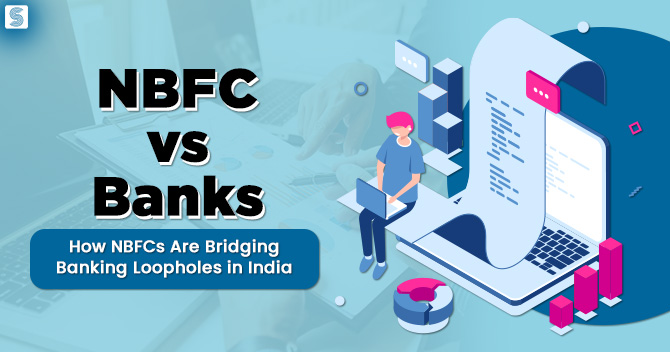Semi-Closed Wallet License in India

Swarit Advisors | Updated: Nov 02, 2017 | Category: NBFC
Electronic monetary transactions and mobile wallets have achieved significant growth in recent years. Every day we come across discounts offers like “Use PayTM wallet and get 5% additional discount on BigBasket, “Use Ola wallet while booking Ola cabs and get a discount on my taxi fare” etc. The question arises is what all these wallets are? Do these wallets are regulated? These are the Digital wallet or E-wallet which refers to an electronic device that allows an individual to make online transactions. There is a different type of wallets like closed, open, semi-closed which are regulated by Reserve Bank of India (RBI)[1]. In this article, we will study on the Semi-closed wallet.
Table of Contents
What is Semi-Closed Wallet?
- Semi-Closed Wallet refers to the wallet which facilitates to purchase of goods and service, financial services, remittance facilities at clearly identified merchant locations or establishment.
- Semi-Closed wallet holder should have a specific contract with the issuer or contract through a payment aggregator/payment
- Semi-Closed wallet holder shall obtain Semi-Closed Prepaid Payment Instruments from the issuers which shall be used for above facility.
- Above instrument do not allow any cash withdrawal, regardless of whether they are issued by a bank or non-bank PPI Issuers.
- In India, MobiKwik, PayU and PayTM offers semi-closed wallets.
What are the RBI norms for Semi Closed Wallet?
The RBI has issued directions on Issuance and Operation of Pre-paid Payment Instruments in India which regulate the semi-closed wallet.
What is Eligibility Criteria?
- Banks on fulfilling the eligibility criteria as stipulated by the concerned regulatory department of RBI.
- Banks who provides Mobile Banking facilities to the customer are permitted to issue mobile phone-based PPIs.
- Registered Non-Banking Financial Companies.
- Any other entity holds a specified
Does wallet permits Cross-Border Transaction?
- Semi-closed wallet holder who has to obtain Prepaid Payment Instruments (PPI) from Bank and PPI having Authorised Dealer license are permitted to use in cross-border transactions.
- Such transaction is permissible for current account transactions only.
- The holder shall adhere to norms governing such transactions, including extant Liberalised Remittance Scheme norms.
- Semi-closed wallet holder shall request to the Issuers to enable such facility.
- The cross-border transaction at the beginning limit is up to Rs.5000/ per transaction.
What are the Capital requirements?
- All entities, seeking approval from RBI shall have net worth at least Rs. 25 crore as per the last audited balance sheet and shall be maintained at all times.
- Newly incorporated entities which may not have an audited statement of financial accounts shall submit a certificate from their Chartered Accountants regarding the current net worth along with provisional balance sheet.
Other conditions:
- Applicant entities who have Foreign Direct Institution (FDI)/Financial Institution Investors (FII) shall comply with the minimum capital requirement as applicable under extant Consolidated FDI policy guidelines of Government of India.
- Non-bank entities applicant shall be a company incorporated in India and registered under the Companies Act 1956 /2013[2].
- The Memorandum of Association (MOA) of the applicant entity shall cover the proposed activity of operating as a PPI issuer.
- Non-banking entity applicant shall comply with the conditions stipulated by RBI.
- The companies have to ensure that separate login is provided for the prepaid payment instrument (PPI) account and that it is not made part of access to other services offered by the service or its associate company or group, etc.
- Certificate of Authorisation:
The applicant is granted Certificate of Authorisation by RBI with the validity of five years.
- Renewal of Certificate:
The applicant shall apply in writing to RBI at least three months before the expiry of the validity period for renewal.
- Money Laundering (Know Your Customer/Anti-Money Laundering/Combating Financing of Terrorism) Provisions:
All PPI holders shall comply with the provisions of money laundering guideline.
Issuance of Semi-closed PPIs by banks and non-bank PPI Issuers:
Banks and authorized non-bank entities can issue the following types of semi-closed PPIs:
PPIs up to Rs.20, 000:
- Required minimum detail of customer
- Outstanding amount permitted up to 20,000/-
- Loaded/reloaded amount permitted up to 20,000/-
- These PPIs shall be converted into full KYC semi-closed PPIs within a period of 60 days from the date of issue of PPI.
- Fund transfer is permitted up to 10,000/per month
PPIs up to 1, 00,000:
- Required full KYC.
- Outstanding amount permitted up to 1,00,000/-
- PPIs can be reloadable.
- Provide the facility of ‘pre-registered beneficiaries’
- Pre-registered beneficiaries shall transfer funds up to Rs. 1 lakh per month per beneficiary.
- In other case transfer funds up to Rs. 10,000/per month
The validity of prepaid payment instruments:
- All prepaid payment instruments issued in the country shall have a minimum validity period of one year from the date of activation/issuance to the holder.
- The validity shall be communicated at the time of issuance as well as disclosed in PPI site.
- 45 days prior to the expiry of the validity period of PPL shall be communicated through Short Message Services (SMS) or email.
- Even after the expiry of the validity period, a grace period of at least 60 days shall be given to the customer.
- Wallets with zero balance for a consecutive period of one year shall be auto-closed by the services with prior notice to users.
Conclusion:
From the Aadhar enrolment, Jan Dhan Yojana for financial inclusion, mobile wallets, the rolling out of payment banks and the introduction of the Universal Payments Interface, we have been making slow but steady progress in building a strong digital payments framework in India. The government is encouraging digital payments, fin-tech players, and mobile wallet companies.
Also, Read: The Ultimate Guide to E-wallet Business Model














